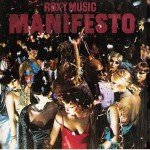 Here at pubcrim, we’re devoted fans of Criminology & Public Policy, the American Society of Criminology journal devoted to policy discussions of criminology research. So we’re delighted to report that C&PP is publishing the piece we’ve informally designated as our pubcrim manifesto. We can’t imagine a better home for these ideas.
Here at pubcrim, we’re devoted fans of Criminology & Public Policy, the American Society of Criminology journal devoted to policy discussions of criminology research. So we’re delighted to report that C&PP is publishing the piece we’ve informally designated as our pubcrim manifesto. We can’t imagine a better home for these ideas.
Articles in C&PP are generally accompanied by a set of critical policy essays, written by smart experts in reaction to the article. We’re still correcting our page proofs and have yet to see the policy essays, but we’re looking forward to some tough but fair critique. In lieu of abstracts, C&PP asks authors to spell out the research summary and policy implications on the front page. Here’s ours:
Research Summary
Public scholarship aspires to bring social science home to the individuals, communities, and institutions that are its focus of study. In particular, it seeks to narrow the yawning gap between public perceptions and the best available scientific evidence on issues of public concern. Yet nowhere is the gap between perceptions and evidence greater than in the study of crime. Here, we outline the prospects for a public criminology, conducting and disseminating research on crime, law, and deviance in dialogue with affected communities. We present historical data on the media discussion of criminology and sociology, and we outline the distinctive features of criminology—interdisciplinarity, a subject matter that incites moral panics, and a practitioner base actively engaged in knowledge production—that push the boundaries of public scholarship.
Policy Implications
Discussions of public sociology have drawn a bright line separating policy work from professional, critical, and public scholarship. As the research and policy essays published in Criminology & Public Policy make clear, however, the best criminology often is conducted at the intersection of these domains. A vibrant public criminology will help to bring new voices to policy discussions while addressing common myths and misconceptions about crime.
